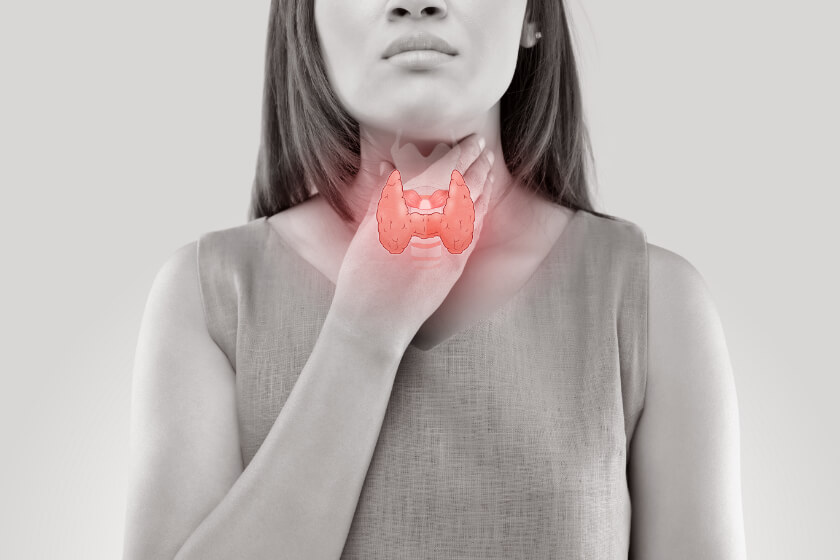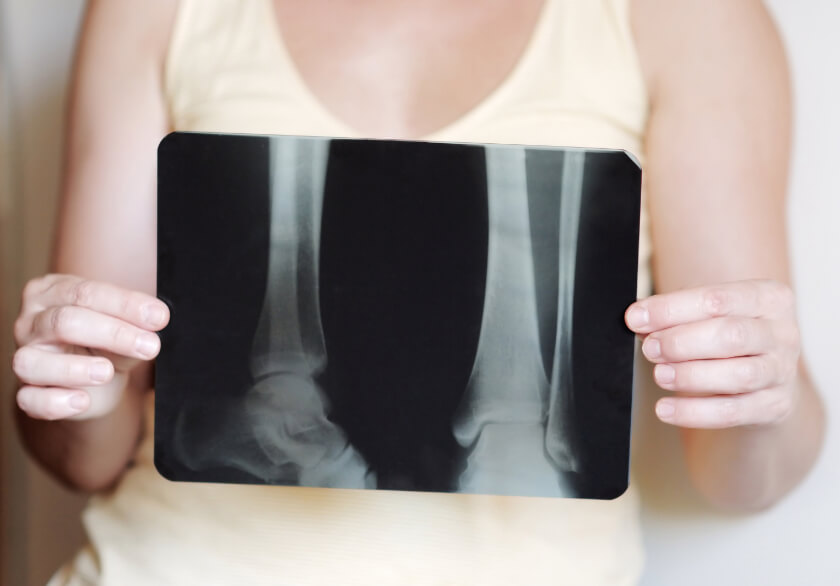
What Does My Thyroid Do?

You have probably heard of the thyroid, but do you know what this important organ does?
Your thyroid is butterfly-shaped gland situated at the front of your neck, just below your Adam’s apple. The thyroid has two lobes, each of which is located on either side of your windpipe, or trachea. If your thyroid gland is healthy, you should not be able to see it or feel it, even when you apply pressure to your neck.
The thyroid gland is often overlooked, but it plays an important role in the way your body functions. The gland produces hormones, which are chemical messengers that tell cells, tissues, and other organs how to function. The hormones produced by your thyroid gland regulate your body’s metabolism, which is the processes that your body uses to transform food into a form of energy that your body can use. Specifically, your thyroid gland regulates the metabolic rate controlling your heart, digestion, muscle function, bone maintenance, and even the development of your brain.
Your thyroid gland produces specific hormones, known as thyroxine (T4) and triiodothyronine (T3), and secretes them into your bloodstream. T3 is the active hormone: it tells your body’s cells how much energy they should use. The cells of your body can also turn T4 into T3. When your thyroid is working properly, it produces the right amount of T3 and T4 to keep your body functioning as it should.
The pituitary gland monitors and controls the amounts of thyroid hormones in your bloodstream. Located in the center of your skull just below your brain, your pituitary gland can sense the levels of T3 and T4, and adjust these levels with its own hormone, known as the thyroid stimulating hormone (TSH). If your pituitary gland senses an imbalance of T3 and T4, it will send TSH to the thyroid and tell the thyroid what it needs to do to get your thyroid hormones back in balance.
Your thyroid gland also produces C-cells, which are special cells that produce calcitonin, a hormone that regulates the levels of calcium and phosphate levels in your blood. Calcitonin is important for maintaining healthy bones.
About Thyroid Disease
Thyroid disease is any condition that can prevent your thyroid from making the right amounts of hormones. When your thyroid produces too much T3 or T4, your body uses energy too quickly. Doctors refer to this as hyperthyroidism. This condition can cause symptoms that may include:
- Nervousness
- Anxiety
- Hyperactivity
- Difficulty sleeping
- Feeling tired
- Muscle weakness
- Diarrhea
- Sensitivity to heat
Thyroid disease can cause your thyroid gland to produce inadequate amounts of T3 and T4 in a condition known as hypothyroidism. This condition can cause:
- Fatigue
- Muscle weakness
- Increased sensitivity to cold temperatures
- Dry skin
- Constipation
- Puffy face
- Weight gain
- Hoarseness
An estimated 20 million people in the United States have some form of thyroid disease, according to the American Thyroid Association. As many as 60 percent of people with thyroid disease are unaware of their condition. Undiagnosed thyroid disease can lead to a number of serious conditions, such as cardiovascular diseases, bone weakness known as osteoporosis, and infertility. Pregnant women who have undiagnosed or inadequately treated hypothyroidism face a higher risk for miscarriage, preterm delivery, and even severe developmental problems in their children. Clearly, an accurate diagnosis and treatment are essential for good health.
Certain conditions can cause thyroid disease. Thyroiditis can cause inflammation of the thyroid gland, which can lower the amounts of hormones the gland produces. Hashimoto’s thyroiditis is a genetic disorder of the immune system. Graves’ disease can result in an overactive thyroid gland that produces too much thyroid hormones.
To function correctly, your thyroid relies on a good supply of iodine, which you get from the food you eat. Getting inadequate amounts of iodine can prevent your thyroid gland from functioning properly. Excessive iodine intake can cause the thyroid to produce too much or too little hormones.
Diagnosis and Treatment of Thyroid Disease
Thyroid disease can be difficult to diagnose, as many conditions can cause the symptoms associated with thyroid disease. To diagnose thyroid disease, your doctor may order blood tests that measure thyroid hormones and TSH, imaging that creates pictures of your thyroid, and a physical exam.
A doctor may perform a thyroid biopsy to help diagnose thyroid disease. A biopsy is a sample of tissue, which your doctor sends to a laboratory for analysis.
Treatment of thyroid diseases depends largely on the specific condition causing hypothyroidism and hyperthyroidism. Your doctor may treat hyperthyroidism with the medications methimazole and propylthioracil, which stop your thyroid from producing hormones. Your healthcare provider might also prescribe radioactive iodine to prevent your thyroid from over-producing hormones, or beta blockers to help control symptoms. Surgical removal of the thyroid is a permanent solution to hyperthyroidism. Your doctor may treat hypothyroidism with synthetic thyroid hormones that replace the T3 and T4 your thyroid normally makes.
For more information about your thyroid, consult with your doctor. Determine whether your thyroid is functioning well can have a dramatic effect on your health.




